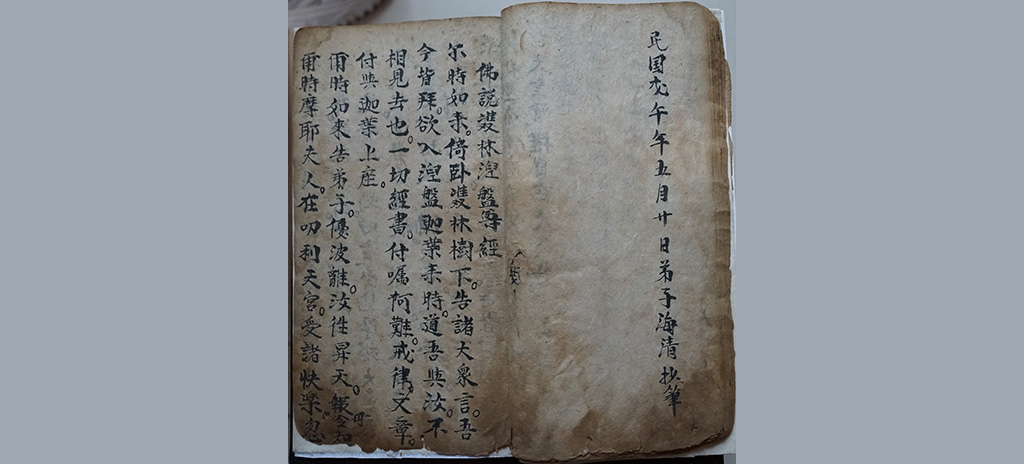Speaker: Meir Shahar (Tel Aviv University)
Date and time: Tuesday, September 10, 2024 – 10:00 (London)
Location: FAMES Room 8/9, University of Cambridge
Abstract: The Southern-Chinese Province of Guizhou is home to lay Buddhist priests. Its tiny villages house ritual masters, who identify themselves as Buddhist. Albeit married and un-tonsured these rural clerics conduct Buddhist-oriented rites for the salvation of the living and the dead. Their elaborate rituals – sometimes lasting many days each – include lengthy prose and verse sections, hymns, prayers, and oral incantations. These are written down in manuscripts that have been transmitted in their families for many centuries.
In this paper, I will survey the ritual scriptures of one priest, whose rich library features over a hundred-and-fifty manuscripts, holding together thousands of pages. I will highlight the ancient pedigree of his scriptures (some of which are traceable to the medieval period) no less than their indebtedness to canonical Buddhist literature. All in all, the ritual scriptures of the Guizhou priests attest to the tremendous impact that the Buddhist faith has had upon rural Chinese religion.
Speaker: Meir Shahar is the Shaul N. Eisenberg Chair for East Asian Affairs at Tel Aviv University. He is the author of numerous books on Chinese religion, including Crazy Ji: Chinese Religion and Popular Literature (1998); Oedipal God: The Chinese Nezha and his Indian Origins (2015); and The Shaolin Monastery: History, Religion, and the Chinese Martial Arts (2008), which has been translated into many languages. Professor Shahar’s forthcoming book is titled Kings of Oxen and Horses: Draft Animals, Buddhism, and Chinese Rural Religion.
“Book Culture in Buddhism and Beyond” Lecture Series:
This new lecture series, launching in Michaelmas Term 2023, features talks on writing and publishing in the Buddhist tradition and in related religious and cultural spheres. Lectures in this series offer insights into the various ways in which writing and printing has been shaping Buddhism, as well as the multifaceted impact of Buddhism on book culture in East Asia, past, present, and future.
Registration is not required. The lectures are free and open to scholars, students, and the public.
Please note: all events take place in person at the University of Cambridge. Exact times and location will be circulated via email and posted on the webpage of Faculty of Asian and Middle Eastern Studies.
This lecture series is organised by Dr Noga Ganany (ng462@cam.ac.uk) in the Faculty of Asian and Middle Eastern Studies at Cambridge with the generous support of the Glorisun Global Network.

